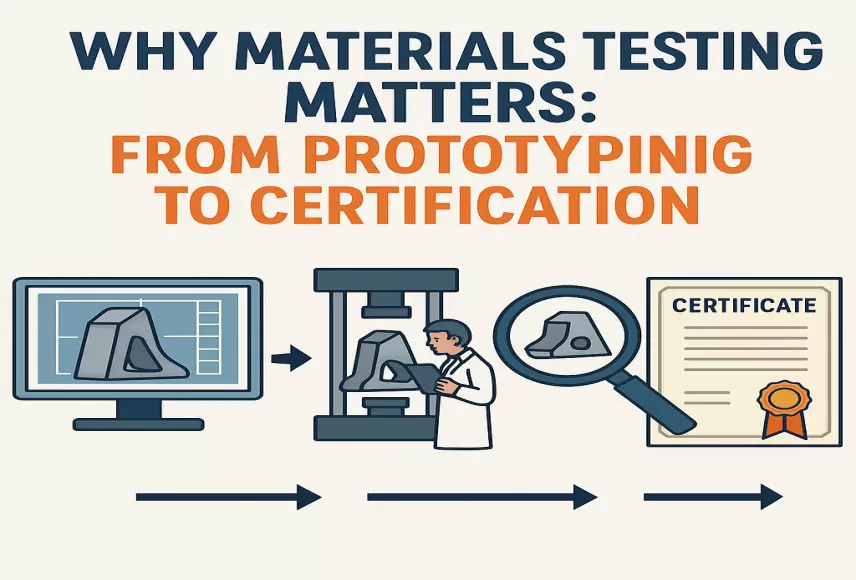- [email protected]
- 00974-50540047

In today’s competitive manufacturing environment, innovation moves fast. New materials, 3D printing technologies, and advanced composites are transforming industries across the aerospace, automotive, and biomedical engineering sectors. But no matter how cutting-edge the design, a product is only as reliable as the data that proves its performance.
This is where materials testing becomes indispensable. It’s not just a quality control step, but rather it’s the bridge between concept and certification, ensuring that every part delivered to the field meets stringent safety and performance standards.
Materials Testing: The Backbone of Reliable Manufacturing
Materials testing involves the systematic evaluation of how materials respond to forces, stresses, and environmental conditions. These tests help manufacturers answer critical questions:
From prototypes to production runs, testing provides the confidence to move forward with innovation while minimizing risk.
Why It Matters Across Industries
No matter the industry, materials testing underpins product credibility and certification.
From Prototyping to Certification: The Role of Mechanical Tests
Materials testing is more than one test - it’s a suite of evaluations that together provide a complete picture of performance:
These tests not only detect flaws but also guide material selection, optimize designs, and streamline certification processes.
The Critical Role in 3D Printing & Emerging Materials
Additive manufacturing has introduced new opportunities - and new challenges. Unlike conventional materials, 3D-printed parts often exhibit anisotropic properties, meaning strength can vary with orientation. Layer bonding, porosity, and surface finish all influence performance.
Industries adopting 3D printing - from medical implants to aerospace brackets - must rely on universal testing machines (UTMs) and other precision instruments to:
Without robust testing, even the most advanced 3D-printed components remain unqualified for critical applications.
How ِAddiSol Supports Manufacturers & Research Labs
At AddiSol, we understand that reliable data drives innovation. That’s why we partner with leading global manufacturers to offer:
These tools not only meet ASTM, ISO, and EN standards but also help companies transition from prototyping to mass production with confidence.
The Industry Shift: Testing as a Competitive Advantage
Modern manufacturers don’t see testing as an expense but rather as a strategic investment.
Companies that integrate advanced testing capabilities early in product development gain a competitive edge, enabling them to deliver smarter, safer, and stronger products more quickly.
Conclusion: Trust is Built on Testing
From the prototype to the final certified product, materials testing ensures that what you design is what you deliver. In an age where innovation moves at lightning speed, testing is what keeps progress safe, sustainable, and compliant.
AddiSol is Here to Help
We provide state-of-the-art materials testing machines, expert guidance, and local support to help your lab achieve world-class testing capabilities.
Contact us today to discuss the right testing solutions for your needs.